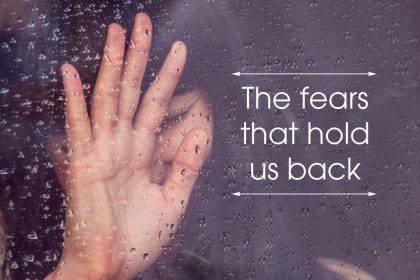Why hope can make or break your career
Find out why hope has the power to make or break your career, and how you can adopt new practices to work hopefully to attain your goals.
Since we launched Talented Ladies Club we’ve shared over 1,000 articles, all intended to inspire and empower you to make your ambitions real. And we’ve noticed something very important.
You can have all the talent, ambition, opportunity and resources you need to succeed. But if you don’t have the right mindset, you won’t get there. And indeed, sometimes the people who do make it, aren’t the most talented. Instead they’re the ones with the right attitude or emotional resources.
The key to success is hope
But what exactly are those emotional resources? And how can you acquire them? Actor and filmmaker John Montana believes that the key to success is simple. It’s hope.
Hope is defined as ‘an optimistic attitude of mind based on an expectation of positive outcomes related to events and circumstances in one’s life or the world at large’. And in this article, John explains why it’s essential for actors in particular, and how they can adopt new practices that enable them to hopefully work towards the success they desire.
But we believe that these lessons are just applicable and valuable, whatever your ambitions or industry, and whether you’re pursuing a career, a freelancer or starting your own business.
Hopelessness is the elephant in the room
In the entertainment business, uncertainty and hopelessness is the elephant in the room. Hopelessness and despair are a daily battle for everyone of us actors. I include myself, because I am also an actor trying to make it here in LA
There are so many opportunities here that your life can change tomorrow. Tomorrow! And I have seen it.
My next-door neighbour who I have known for 15 years, is in his 50s and he just landed his first regular role on a TV show last month. And his advice is… don’t stop. Don’t give up hope. Keep going and it will work out.
But he is the exception, not the rule. But the one thing that I have noticed is that he was always hopeful about his future. He was always working at his craft. And this dedication constantly brought jobs, in both TV and Commercials.
Now he has a family and a house to keep up, so this was always his reality check. These were the very things that gave him hope and drive to continue in the face of overwhelming odds.
Positive Organisational Behaviour
Professor Fred Luthans, management professor specialising in organisational behaviour has an approach that he calls Positive Organisational Behaviour (POB) . The goal of POB, which can work very well with actors and actresses is to:
- Shift the emphasis away from what is wrong with people to what is right with people.
- Focus on one’s strengths, as opposed to beating yourself up due to perceived weaknesses or screw-ups.
- Be interested and increase your resilience, as opposed to ones vulnerabilities.
- Concern yourself with enhancing and growing one’s wellness, prosperity and the good life, as opposed to going into the dark side.
Four critical qualities of POB
Luthans and his colleagues have identified four qualities as the critical component in Positive Organisational Behaviour.
- Self efficacy – having confidence to take on and put in the necessary effort to succeed at challenging tasks
- Optimism – making a positive attribution and expectation about succeeding now and in the future
- Hope – persevering toward goals and, when necessary, redirecting paths to goals in order to succeed
- Resilience – when beset by problems and adversity, sustaining and bouncing back and even beyond to attain success.
As actors, we can very easily accomplish the third point: Finding different ways to achieve your goals. With cameras being so cheap, hell…you can even make a film on your cell phone or iPad, you can literally side step the entire Hollywood madness and create your own films.
This is what I have started to do, and it has been an amazing experience so far.
These qualities are associated with higher performance
Making the leap to POB can have a remarkable impact on how we do business as actors. It pulls the intense focus away from under-performing, and it puts the attention instead on high performance – asking “how can we create more of this?”
Psychologists associate these four qualities with higher performance, commitment, and satisfaction. I think one of the most interesting and exciting things about these four qualities is that they are malleable and open to improvement when incorporated into ones life on a day-to-day basis.
How would this apply to actors? Well, I think that as actors, most of us were never taught these basic qualities. When, or even if, we went to college, we were more interested in stage combat, or vocal training, or how to delve into a character and make it real. Or just getting on stage and acting in front of an audience.
But for me, the good news here is that if these qualities are ‘open to improvement’ then we can learn these and get better at them with practice.
The difference between hoping and wishing
Instead of drifting into alcohol or drugs or any other thing we use to mask our disappointment and pain of my rejection or unemployment, you can instead surround yourself with friends and family. Or make your own film. Or write your own script. Or join an acting class to constantly hone your craft for when that day does come.
There is an important distinction to be made here: It is the division between hope and wishing.
Those that are hopeful are actively trying to find the best path of action to take while delving into the daily obstacles. However, research has shown that many of those who have hope are in reality only wishfully thinking and passively going through the motions, as if they are in denial about their actual circumstances.
How long should you stay hopeful?
This is a very personal decision that every single one of us who aspire to be a working or successful actor must make some day.
The only way to know if you’re on course is to perform a reality check every five years. That way, you can see if you’re making any real progress. And by progress, I mean genuine evidence you’re moving forward. That evidence can be in the form of:
- You get representation from an established agent
- You start getting cast in acting jobs…commercials, theatre roles, TV and film
- Callbacks on mainstream projects
- You receive several rave reviews from known critics for your work
In other words, there has to be irrefutable proof that you have the skill and ability to achieve a long-term career as an actor. If none of those elements are present, you can try waiting another five years for the next reality check, but it would be a mistake to go further than that.
As for my next door neighbour, or a couple of well-known actors in their 50’s that got their big breaks late in life – Richard Jenkins and Michael Emerson, please understand those guys were working actors known to the casting community before they made it big.
And Louie C.K. from the show “LOUIE” was a respected comic who kept building on his accomplishments. If any of them did a reality check after five years, I’m sure they would’ve seen the kind of progress I’m talking about.
Charles Grodin, a wonderful actor best known to me for his fabulous performance in Midnight Run said it best:
“Reach for it, but don’t fall off the edge of the world. I wish you could all get what you want, but there’s nothing as valuable as a useful happy life, and rumour has it there are some people who have achieved that who aren’t actors.”
But the final words should be reserved for the American poet Emily Dickinson:
“Hope is the thing with feathers that perches in the soul and sings the tune without the words and never stops at all.”
John Montana is an actor living with his wife in LA and has begun to make short films. His most recent film, Hungry has been accepted into 24 film festivals all over the world. Check out his short films at No Title Production Films.










